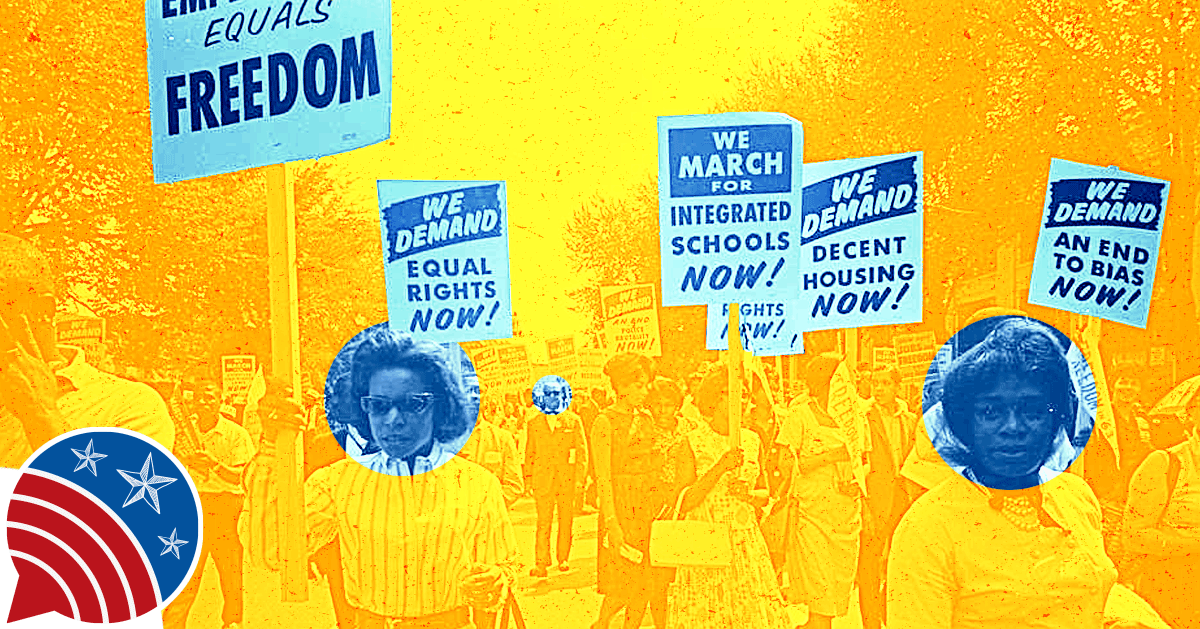
Civil Rights
Podcasts & Videos
Frederick Douglass's Speech: Civil Rights, Part 2
- Watch and listen to the 60-Second Civics video below. If you'd like, you can also read along using the script that appears below the quiz. Or you can turn on the video's subtitles and read while watching the video.
- Take the Daily Civics Quiz. If you get the question wrong, watch the video again or read the script and try again.
Dr. Lester Brooks: Thank you for having me.
Dr. Donna Phillips: Sure thing. Dr. Brooks, how does Frederick Douglass, his speech, "What to the slave Is the Fourth of July," captured the ongoing struggle for civil rights.
Dr. Lester Brooks: Douglass...this was an incredible speech. He wondered, first of all, why he was introduced or invited to speak. And he spoke brilliantly. He was one of the leaders in the fight to bring about emancipation for slaves. And in the speech, he questioned the idea of blacks celebrating July Fourth. And as far as he was concerned, the July Fourth celebration didn't include the enslaved.
Didn't include blacks because they weren't benefiting from the Declaration of Independence. And he continually talks about the Declaration of Independence in that speech and how he admires the principles that were placed in that came out of that Declaration of Independence. So he deeply appreciated them. And as far as he was concerned, he wanted them to be extended. And but he did have hope.
And that's the good thing that he did see hope for the future of America.
Dr. Donna Phillips: Thank you, Dr. Brooks.
Dr. Lester Brooks: Thank you.
Dr. Donna Phillips: That's all for today's podcast. 60-Second Civics, where civic education only takes a minute.






